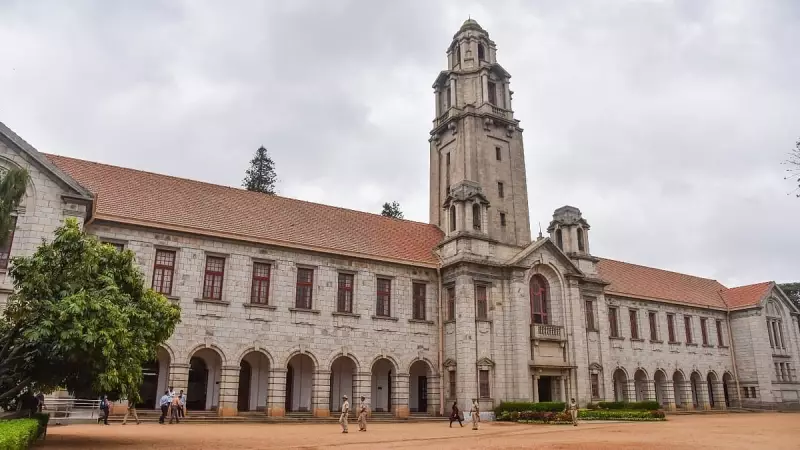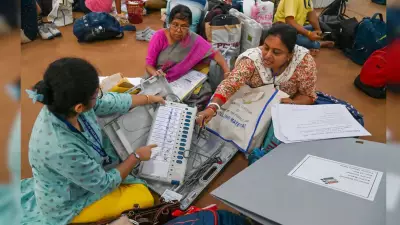
In a shocking case of institutional fraud, two senior staff members from the prestigious Indian Institute of Science (IISc) in Bengaluru have been arrested for allegedly diverting approximately ₹1.94 crore meant for student scholarships and fellowships. The Central Bureau of Investigation (CBI) has uncovered a sophisticated financial scam that deprived deserving students of crucial educational funding.
The Arrests and Initial Investigation
The CBI has taken into custody Shivkumar, the institute's senior accounts officer, and A M Pradeep Kumar, the deputy chief accounts officer. Both individuals held positions of significant financial responsibility within one of India's premier educational institutions. The arrests followed extensive investigation into financial irregularities detected in the institute's accounts.
According to CBI officials, the fraudulent activities spanned several years, with the accused systematically manipulating financial records and transfer processes. The stolen funds were specifically allocated for various student welfare programs, including scholarships, fellowships, and other financial aid initiatives designed to support students from economically disadvantaged backgrounds.
Modus Operandi of the Fraud
Investigators have revealed that the accused officials employed multiple methods to divert the funds. The primary method involved creating fake student accounts and processing fraudulent transactions that appeared legitimate on surface examination. The sophisticated nature of the fraud allowed it to continue undetected for an extended period.
The CBI case details how the officials exploited their positions of authority within the accounts department to bypass standard verification procedures. They manipulated the system to transfer funds to accounts they controlled, while maintaining outward appearances of normal financial operations. The investigation has uncovered evidence of forged documents, fake approval signatures, and manipulated digital records.
Scale and Impact of the Financial Misappropriation
The total amount diverted stands at approximately ₹1.94 crore (over 19 million rupees), a substantial sum that could have supported numerous students through their academic journeys. This amount represents critical financial assistance that never reached its intended beneficiaries—deserving students who rely on such support to continue their education at the prestigious institute.
The fraud has raised serious questions about financial oversight mechanisms at educational institutions, even those as reputed as IISc Bengaluru. The case highlights vulnerabilities in internal financial controls and the potential for abuse when single individuals or small groups control significant financial resources without adequate oversight.
Institutional Response and Ongoing Investigation
IISc Bengaluru administration has cooperated with the CBI investigation since the irregularities first came to light. Institute officials have expressed shock and disappointment at the breach of trust by senior staff members. The institute has initiated its own internal review of financial processes and control mechanisms to prevent similar incidents in the future.
The CBI continues to investigate the possibility of additional individuals being involved in the scam. Investigators are tracing the trail of diverted funds and examining bank records to determine the ultimate destination of the misappropriated money. The agency is also investigating whether this was an isolated incident or part of a larger pattern of financial irregularities.
Forensic accountants are analyzing digital records and financial transactions spanning several years to build a comprehensive case against the accused. The investigation team is examining whether the accused officials benefited personally from the diverted funds or if the money was channeled to other parties.
Broader Implications for Educational Institutions
This case has sent shockwaves through India's higher education sector, particularly among premier institutions that handle substantial government funding and private donations for student welfare. The incident underscores the critical need for robust financial oversight and regular auditing of accounts dealing with student scholarships and fellowships.
Education experts are calling for mandatory multi-layer approval processes for financial transactions involving student funds. Many are advocating for greater transparency in how educational institutions manage and disburse scholarship money, suggesting that digital tracking systems with real-time monitoring could help prevent such frauds in the future.
The case also highlights the importance of whistleblower protection mechanisms within educational institutions, as early detection of such frauds often depends on insiders willing to report suspicious activities without fear of retaliation.
As the legal process moves forward, the academic community watches closely, hoping that this case will lead to systemic reforms in how educational funds are managed and protected across India's higher education landscape.





